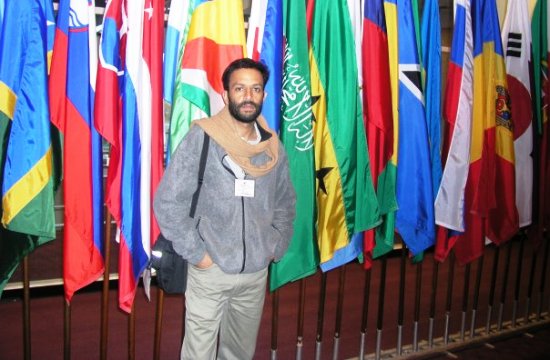
Kashmir- the heart of revolt
July 31, 2004
By Izhar Wani
Kashmiris accuse the security forces of large-scale human rights abuses, including torturing and killing youths on the pretence of combating militancy Sixteen years after Islamic insurgents launched their first violent attacks in once-idyllic Indian Kashmir, tens of thousands of people are dead, the economy is in tatters and the conflict has grown into one of the world’s bloodiest.
The Kashmir valley, famously described in an Urdu couplet as “paradise on earth”, is now the heart of the revolt against New Delhi’s rule and has become heavily militarised.
Srinagar, the historic main city of Indian-held Kashmir, wears the air of a garrison with Indian soldiers in battle fatigues patrolling the city and frisking anyone they consider suspicious. Roads are checked daily for bomb or landmines.
Kashmir, a Muslim-majority region of snow-capped mountains, has triggered two of the three wars between India and Pakistan, the first coming just after the end of British colonial rule in 1947.
The Indo-Pakistani war that ended in 1949 left Kashmir divided essentially as it remains — two-thirds in India’s control with most of the rest under Pakistani rule. While the bitterness never faded, the first major rebel violence only broke out on the night of July 31, 1988 when two bombs planted by a Muslim separatist militant group in Srinagar exploded.
Nobody died in those explosions, but since the revolt got fully under way in late 1989, the fight against New Delhi’s rule has become more bloody, claiming an average of 10 to 12 lives a day.
There is hardly a family who has not lost a relative to the violence. “The militancy has orphaned and widowed thousands and left thousands dead and many more maimed. Its also playing havoc with the psyches of the people,” said Tahir Mohiudin, editor of the Urdu-language Chattan newspaper.
Ordinary people in the region, which has a population of nearly 11 million, are weary of the never-ending violence. “I want my daughter to live in peace. Our lives have been shattered since I lost my husband and a son in a bomb explosion in 1996. I have become a nervous wreck,” 34-year-old Mehbooba Nazir said. Both sides are seen as having a hand in the violence. Kashmiris accuse the security forces of large-scale human rights abuses, including torturing and killing Muslim youths on the pretense of combating militancy, a charge New Delhi rejects. But the roughly dozen militant groups fighting for Kashmir’s merger with Pakistan are also accused of committing grisly attacks, such as massacring villagers and killing women and children. At least 40,000 people — soldiers, civilians and militants — have died in rebel-related violence, according to the official count. The separatists say the toll is at least 90,000.
Lately, after a dip in militancy, officials say rebel attacks have again risen in what political analysts see as an attempt by guerrillas to derail nascent peace efforts by India and Pakistan to resolve their dispute over the region, about which they nearly went to war a third time in 2002.
This week, in the first major suicide attack in Indian Kashmir this year, two Islamic militants and five Indian troops were killed when rebels stormed an island security camp in the middle of Srinagar’s famed Dal lake. The insurgency has also led to massive unemployment estimated at around 50 percent despite the Indian government pumping in around 1.5 billion dollars a year in subsidies into the region. And the lives of residents are disrupted by long power outages in a region that is rich with hydro-electric potential.
The unemployment blight is particularly hard on the many thousands of Kashmiri youths with college and university degrees, as investors have shunned the region due to the insurgency. Thousands have simply left the state in quest of a more peaceful existence elsewhere in India.
The insurgency has also dealt a huge blow to tourism in the region, once a haven for visitors, although the recent easing of violence has encouraged the return of some to the colourful houseboats on the placid Dal lake. But while Kashmiris are tired of the bloodshed, they don’t want the deaths of so many to have been in vain.
“We have suffered a lot. Everyone wants an end to the violence and return of peace. But peace should come on our terms. This dispute should be resolved according to our wishes,” said Srinagar shopkeeper Mohammed Yusuf. AFP















